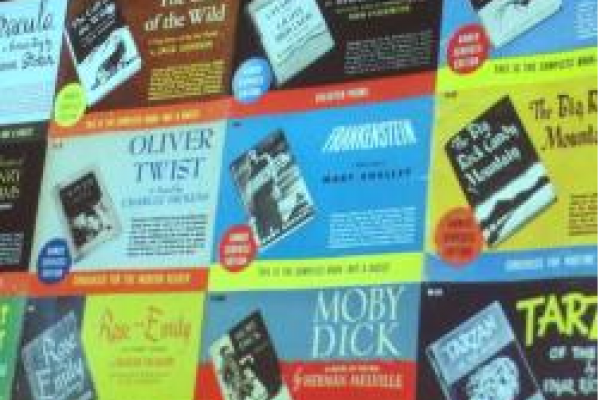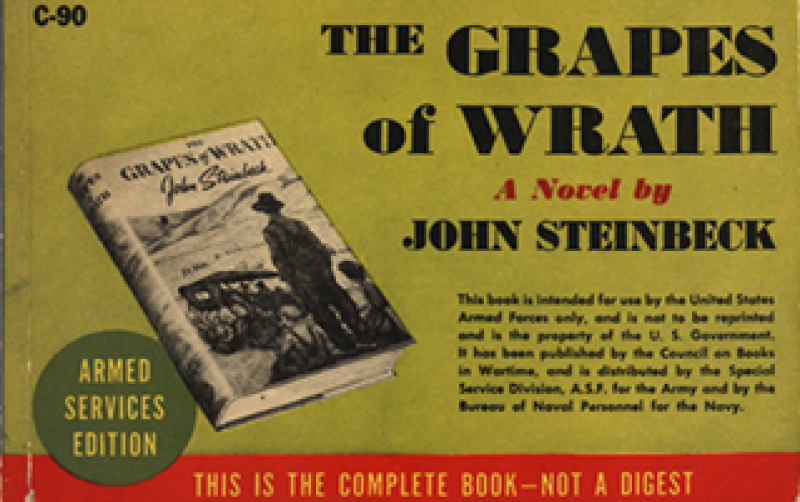
During World War II, 123 million copies of almost 1200 different book titles were distributed to American soldiers through the ambitious publishing project known as the Armed Services Editions.
According to Fredrik Tydal, post-doctoral fellow at University of Virginia, Charlottesville,
The slogan for the series was "Books Are Weapons in the War of Ideas," which obviously speaks to the view of literature underpinning the whole venture. Essentially, it was a way to manifest the importance of free speech, and to make the soldiers realize what they were fighting for. But there is also a kind of lingering New Deal idealism informing the initiative, which seeks to plan ahead for the coming peace by giving the soldiers an education. While the series does contain a lot of popular literature like Westerns and detective novels, it also features a good deal of classics and contemporary modernism: from Homer to Voltaire, and from Thomas Mann to Virginia Woolf. Even more interesting from my perspective, the series also includes several novels that deal with pressing social issues on the homefront, such as poverty and segregation. And what's intriguing is that we actually have evidence of reader-response, since the soldiers were encouraged to send in their feedback on the series, including suggestions for future titles.

